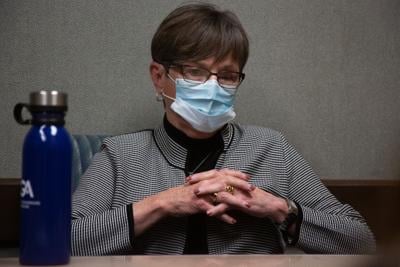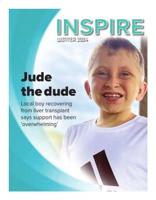Requests for absentee ballots in Kansas rose this year because of the pandemic, and if Gov. Laura Kelly had her way, all Kansans would vote by mail in the general election on Nov. 3.
Riley County in mid-July reported seeing more than 6,300 mail application ballots for the primary election, which was just a few shy of surpassing the number of requests in the 2016 presidential election.
In an interview with The Mercury Thursday, the governor said the dramatic increase in mail-in voting likely relieved congestion at the polls during this election. However, Kelly said officials won’t know for at least a week whether the health precautions taken ahead of time at in-person polling stations, such as being asked to wear masks, social distancing and increased personal hand sanitation, were effective enough in preventing spread of the coronavirus.
Even so, Kelly said that with rising cases in the state — reports of new cases continue to rise by a few hundred every few days — mailing in ballots would be the safer voting method, especially for the November election, which historically sees larger voter turnout, particularly during a presidential election.
“This was a primary and the turnout during primaries, traditionally, is pretty low,” Kelly said. “We really do need to think about the general (election). That’s when lots of people tend to come out, and they tend to come out in clusters — before work, after work, (the) lunch hour.”
Kelly said voter fraud is not as large an issue as some people have said. States, such as Washington state, that have largely relied on mail-in voting for years have not seen evidence of widespread fraud. County Clerk Rich Vargo similarly has said the clerk’s office workers are specially trained in signature verification, and part of the security in voting is people being subject to felony charges if suspected of fraud, which serves as a deterrent.
“We’re also talking about the consolidation of polling places that’s been taking place over the last several years,” Kelly said. “It used to be every school had a polling place, every church had a polling place, and that’s not the way that it is anymore. They have really been condensed down into very few locations where more people go. I think it’s just a recipe for problems that we don’t need to set up.”














